इस लेख में आपको SSC JE Exam Pattern and Syllabus के बारे में पूरी जानकारी विस्तार से दी जाएगी| हर साल SSC, JE की परीक्षा का आयोजन करता है नए और प्रतिभशाली Engineers को सरकार के अंतर्गत आने वाले विभिन्न विभागों और संगठनों में भर्ती करने के लिए|
अगर आप भी उन ही Engineers में से हैं जो SSC JE की परीक्षा को उत्तीर्ण करके सरकारी नौकरी प्राप्त करना चाहते हैं, इसलिए आप जानना चाहते हैं की SSC JE Exam के लिए क्या पढ़ें और क्या न पढ़ें तो में बता दूँ आप एक दम सही जगह पर आएं हैं|
एक छात्र के पास परीक्षा की तयारी करने का काफी load होता है इसलिए Career Jano आपको updated SSC JE Exam Pattern और Syllabus की पूरी information देगा ताकि आप अपना पूरा ध्यान परीक्षा की तयारी पर केंद्रित कर सकें और परीक्षा में अच्छे अंक लाकर एक अच्छी नौकरी हासिल कर सकें| तो बिना टाइम वेस्ट किये हुए हम जानते हैं के SSC Junior Engineer का नया और updated exam pattern क्या है|
SSC JE Exam Pattern 2024
Staff Selection Commission, एसएससी जेई परीक्षा का दो चरणों में आयोजन करती है| मतलब आपको दो पेपर देने होंगे: Paper-I, एक Computer Based Examination है जिसमें आपके Objective Multiple Choice Question होंगे, Paper-II Descriptive Paper होगा जिसमे आपको पेन और पेपर का इस्तेमाल करके परीक्षा को पूरा करना है|
उम्मीदवारों को SSC JE Exam द्वारा सरकारी कार्यालयों में नौकरी प्राप्त करने के लिए इन दोनों Papers को पास करना अनिवार्य होगा|
तो चलिए SSC JE की भर्ती प्रक्रिया के इन दोनों चरणों के परीक्षा पैटर्न को एक-एक करके समझते और जानते हैं|
SSC JE Exam Pattern Paper-I
SSC JE Paper-I Exam ऑनलाइन आयोजित की जाएगी| SSC JE Paper-1 प्रश्न पत्र को तीन भागों में विभाजित किया गया है जिसमें कुल मिलाकर आपसे 200 प्रश्न पूछे जायेंगे|
भाग (i) में आपके General Intelligence & Reasoning के प्रश्न होंगे, भाग (ii) में General Awareness से सम्बंधित प्रश्न पूछे जायेंगे| SSC JE Paper-I का भाग (iii) आपका technical section होगा, जिसको 3 part में विभाजित किया गया है| Part A (Civil & Structural), Part B (Electrical) और Part C (Mechanical).
आपको सभी Part के प्रश्नो का उत्तर नहीं देना है, आपको किसी एक Part को चुनना होगा| अभ्यर्थी अपने इंजीनियरिंग branch के अनुसार Part A, B, C में से किसी एक का चयन कर सकते हैं|
प्रत्येक प्रश्न में आपको चार विकल्प दिए जायेंगे जिसमे से केवल एक ही विकल्प सही होगा (Multiple Choice Questions)|
SSC JE का आवेदन पत्र भरने के समय आपको Part-ए, बी और सी के लिए अपने विषयों का चयन करना होगा। यदि आप परीक्षा का विषय चुनने में असफल होते हैं तो आपके answer sheet का मूल्यांकन नहीं किया जाएगा।
परीक्षा में प्रत्येक सही उत्तर के लिए आपको 1 अंक दिए जाएंगे। वहीं आपके द्वारा दिए गए हर एक गलत उत्तर के लिए आपके 0.25 अंक काट दिए जायेंगे|
SSC JE Paper-I प्रश्न पत्र भाग (i), (ii), और (iii) अंग्रेजी और हिंदी दोनों भाषाओं में आयोजित किये जाते हैं|
SSC JE Exam Pattern Paper-II
केवल वही उम्मीदवार SSC JE के Paper-II परीक्षा के लिए उपस्थित हो सकते हैं जिन्होंने Paper-I की परीक्षा को उत्तीर्ण किया होता है|
एसएससी जेई Paper-II एक वर्णनात्मक पेपर/ descriptive paper है जिसे offline आयोजित किया जाता है| मतलब के आपको इस परीक्षा को पूरा करने केलिए पेन और पेपर का उपयोग करना पड़ेगा जैसा के आपने अपने स्कूल बोर्ड और इंजीनियरिंग की परीक्षाओं को दिया है|
इस परीक्षा में पूछे जाने वाले प्रश्न केवल तकनीकी होंगे, जिसको पूरा करने के लिए आपको 2 घंटे का समय दिया जायेगा| SSC JE Paper-II के अंतर्गत तीन विषय हैं: Part A (Civil & Structural), Part B (Electrical) और Part C (Mechanical) जैसा के मैंने Paper-I में बताया आपको केवल इन तीन विषयों में से किसी एक विषय के प्रश्नो के उत्तर देने हैं|
Junior Engineer (Civil) अथवा Junior Engineer (Quantity Surveying & Contract) के पद के लिए आवेदन करने वाले उम्मीदवारों को SSC JE Paper-I और Paper-II के Part A (Civil & Structural) के प्रश्नो के उत्तर देने है|
कनिष्ठ अभियंता (इलेक्ट्रिकल) के पद के लिए आवेदन करने वाले उम्मीदवारों को SSC JE Paper-I और Paper-II के Part B (Electrical) के प्रश्नो के उत्तर देने है|
Junior Engineer (Mechanical) के पद के लिए आवेदन करने वाले उम्मीदवारों को SSC JE Paper-I और Paper-II के Part C (Mechanical) के प्रश्नो के उत्तर देने है|
आप SSC JE के Paper-II में पूछे गए प्रश्नों का उत्तर हिंदी अथवा अंग्रेजी भाषा में दे सकते हैं| भाषा का चयन आपको application form भरते समय करना होता है|
अभ्यर्थियों को पेपर-2 के लिए Slide–Rule, Non Programmable Calculator, Logarithm Tables और Steam Table लाने की अनुमति है
एसएससी जेई परीक्षा के सम्बन्ध में सभी महत्वपूर्ण [Information] को जानें
SSC JE Exam Syllabus 2024
जैसा के आपने अभी SSC JE परीक्षा के विषयों के बारे में SSC JE Exam Pattern section में जाना| तो चलिए अब हम SSC JE exam के दोनों Paper के विषयों के बारे में detail में जानते हैं के प्रशन किस-किस टॉपिक से पूछे जाते हैं और आपको क्या-क्या पढ़ना है|
SSC JE Exam Syllabus Paper-I
SSC JE Paper-I परीक्षा में 3 भाग हैं- (i) General Intelligence और Reasoning, (ii) सामान्य जागरूकता, और (iii) General Engineering
General Intelligence और Reasoning
इस भाग का उद्देश्य अभ्यर्थियों की सोचने और समस्या निवारण कौशल की क्षमता का परीक्षण करना है। पूछे गए प्रश्न verbal और non-verbal दोनो तरह के हो सकते हैं|
इस भाग में आपसे पूछे जाने वाले प्रश्न इन निम्नलिखित टॉपिक से होंगे:
Classification/ वर्गीकरण (Figural, Semantic, Symbolic, Number इत्यादि), Series/ श्रृंखला (Arithmetic Number, Semantic, Number, non-Verbal इत्यादि), Analogy (Figural, Semantic, Symbolic, Number इत्यादि), Judgment, decision making, pattern- folding, Seating Arrangement, समानताएं और मतभेद, space visualization, spatial orientation, समस्या निवारण और विश्लेषण,
discrimination, Observation, रक्त संबंध, arithmetical reasoning and figural classification, coding-decoding, Emotional Intelligence, Social Intelligence, Puzzle, visual memory, problem-solving, शब्द निर्माण, numerical operations, symbolic operations, drawing inferences, matrix, statement conclusion, embedded figures, Venn diagrams, critical thinking, syllogistic reasoning, address matching, date & city matching इत्यादि
Best Books for General Intelligence and Reasoning:
- Verbal and non-verbal Reasoning -by R.S Aggarwal >> Buy on Amazon
- A Modern Approach to Logical Reasoning -by R.S. Aggarwal >> Buy on Amazon
- SSC JE (CPWD/CWC/MES) General Intelligence & Reasoning and General Awareness >> Buy on Amazon
General Awareness
इस भाग के प्रश्नों का लक्ष्य उम्मीदवार के आस-पास के माहौल, वर्तमान में हो रही घटनाओं के ज्ञान और समाज की सामान्य जागरूकता का परीक्षण करना होगा।
SSC JE Exam Paper-1 के इस भाग में आपसे पूछे जाने वाले प्रश्न इन निम्नलिखित टॉपिक से होंगे: भारतीय इतिहास और संस्कृति, पर्यावरण, भारत अथवा विश्व के भूगोल के बारे में, Current Affairs, खेल, People in News, भारतीय संविधान, महत्वपूर्ण तिथियां, वैज्ञानिक अनुसंधान, पुस्तकें और लेखकों, अर्थव्यवस्था, राजनीति, जीवविज्ञान, रसायन शास्त्र, भौतिकी, इत्यादि।
Best Books for General Awareness:
- General Knowledge -by Dr. Binay Karna >> Buy on Amazon
- Manorama Year Book >> Buy on Amazon
- General Knowledge -by Arihant >> Buy on Amazon
General Engineering
SSC JE Paper-I का भाग (iii) अभ्यर्थी के तकनीकी ज्ञान की समझ की परख करता है| जैसा के आपको पता है इसमें तीन Part हैं तो चलिए इस भाग के तीनो विषयों के पाठ्यक्रम के बारे में जानते हैं|
SSC JE Syllabus Civil and Structural Engineering Exam Part A
इस Part में आपसे पूछे जाने वाले प्रश्न इन निम्नलिखित टॉपिक से होंगे:
Civil Engineering
Building Materials/ निर्माण सामग्री, Estimating, Costing, and Valuation/ अनुमान, लागत, और मूल्यांकन, Surveying/ सर्वेक्षण, Soil Mechanics, Hydraulics, Irrigation Engineering/ सिंचाई इंजीनियरिंग, Transportation/ परिवहन Engineering, Environmental Engineering, पर्यावरण इंजीनियरिंग
Structural Engineering
Theory of Structures/ संरचनाओं का सिद्धांत, Concrete Technology/ कंक्रीट प्रौद्योगिकी, RCC Design, Steel Design
SSC JE Syllabus Electrical Engineering Exam Part B
Part B में आपसे पूछे जाने वाले प्रश्न इन निम्नलिखित टॉपिक से होंगे:
Basic concepts, Circuit law, Magnetic Circuit/ चुंबकीय सर्किट, AC Fundamentals, Measurement and Measuring Instruments/ मापन एवं मापने के उपकरण, Electrical Machines/ विद्युत मशीनें, Fractional Kilowatt Motors and single phase induction Motors, Synchronous Machines/ तुल्यकालिक मशीनें, Generation, Transmission and Distribution/ ट्रांसमिशन और वितरण, Estimation and Costing/ अनुमान और लागत, Utilization and Electrical Energy/उपयोग और विद्युत ऊर्जा, Basic Electronics
SSC JE Syllabus Mechanical Engineering Exam Part C
Part C में आपसे पूछे जाने वाले प्रश्न इन निम्नलिखित टॉपिक से होंगे:
Theory of Machines and Machine Design, Engineering Mechanics and Strength of Materials, Properties of Pure Substances/ शुद्ध पदार्थों की गुण, 1st Law of Thermodynamics/ थर्मोडायनामिक्स का पहला कानून, थर्मोडायनामिक्स का दूसरा कानून, IC Engines Combustion/ आईसी इंजन दहन, Air standard Cycles for IC Engines/ आईसी इंजन के लिए एयर मानक चक्र, IC Engine Performance, IC Engine Cooling & Lubrication/ आईसी इंजन कूलिंग और स्नेहन, Rankine cycle of System, Boilers, Classification/ वर्गीकरण, Specification/ विशिष्टता, Fitting & Accessories/ फिटिंग और सहायक उपकरण,
Air Compressors & their cycles/ एयर कंप्रेसर और उनके चक्र, Refrigeration cycles/ प्रशीतन चक्र, The principle of Refrigeration Plant, Nozzles & Steam Turbines, Properties & Classification of Fluids/ फ्लूड्स के गुण और वर्गीकरण, Fluid Statics, Measurement of Fluid Pressure/ द्रव स्थिरता, द्रव दबाव का मापन, Fluid kinematics/ द्रव किनेमेटिक्स, Dynamics of Ideal fluids/ आदर्श तरल पदार्थ की गतिशीलता, Measurement of Flow rate/ प्रवाह दर का मापन, Basic principles, Hydraulic Turbines, Centrifugal Pumps/ केन्द्रापसारी पम्प, Classification of steels/ स्टील्स का वर्गीकरण
SSC JE Exam Syllabus Paper-II
यहाँ पर हम जानेंगे SSC JE के सभी technical विषयों को विस्तार से, ताकि आपको पता हो कि ऊपर बताये गए टॉपिक्स में से किन-किन चीज़ों के बारे में पढ़ना|
SSC JE Syllabus Civil and Structural Engineering Exam Part A
Civil Engineering
Building Materials: Physical and Chemical properties/ भौतिक और रासायनिक गुण, classification/ वर्गीकरण, standard tests/ मानक परीक्षण, सामग्री का उपयोग और निर्माण/ उत्खनन जैसे building stones, silicate based materials, cement (Portland), asbestos products, timber and wood-based products, laminates, bituminous materials, paints, varnishes
Estimating, Costing and Valuation: Estimate, glossary of technical terms, analysis of rates/ दरों का विश्लेषण, methods and unit of measurement/ विधियों और माप की इकाई, Items of work – earthwork, Brick work (Modular & Traditional bricks), RCC work, Shuttering, Timber work, Painting, Flooring, Plastering.
Boundary wall, Brick building, Water Tank, Septic tank, Bar bending schedule, Centre line method, Mid-section formula, ट्रैपेज़ोडियल फॉर्मूला, Simpson’s rule.
Cost estimate of Septic tank, flexible pavements, Tube well, isolates and combined footings, Steel Truss, Piles and pile-caps.
Valuation – Value and cost, scrap value, salvage value/ बचाव मूल्य, assessed value/ मूल्यांकन मूल्य, sinking fund, depreciation and obsolescence/ मूल्यह्रास और अशुभता, methods of valuation/ मूल्यांकन के तरीके
Surveying: Principles of surveying/ सर्वेक्षण के सिद्धांत, measurement of distance/ दूरी का माप, chain surveying/ श्रृंखला सर्वेक्षण, working of prismatic compass, compass traversing, bearings, local attraction, plane table surveying, theodolite traversing, adjustment of theodolite/ थियोडोलाइट का समायोजन, Levelling, Definition of terms used in levelling, contouring, curvature and refraction corrections, dumpy level के अस्थायी और स्थायी समायोजन, methods of contouring/ समेकन के तरीके, uses of contour map/ समोच्च मानचित्र का उपयोग, tachometric survey/ टैकोमेट्रिक सर्वेक्षण, curve setting, earth work calculation, advanced surveying equipment.
Soil Mechanics: Origin of soil, phase diagram/ चरण आरेख, Definitions-void ratio/ शून्य अनुपात, porosity, degree of saturation/ संतृप्ति की डिग्री, water content, specific gravity of soil grains/ मिट्टी के अनाज की विशिष्ट गुरुत्वाकर्षण, unit weights/ इकाई भार, density index and interrelationship of different parameters/ घनत्व सूचकांक और विभिन्न मानकों के अंतरसंबंध, Grain size distribution curves और उनके उपयोग. Index properties of soils/ मिट्टी के सूचकांक गुण, Atterberg’s limits, ISI soil classification और plasticity chart.
Permeability of soil/ मिट्टी की पारगम्यता, coefficient of permeability/ पारगम्यता का गुणांक, determination of coefficient of permeability/ पारगम्यता के गुणांक का निर्धारण, Unconfined and confined aquifers/ अपरिवर्तित और सीमित जलीय, effective stress/ प्रभावी तनाव, quick sand/ त्वरित रेत, consolidation of soils/ मिट्टी का एकीकरण, Principles of consolidation/ समेकन के सिद्धांत, degree of consolidation, pre-consolidation pressure/ पूर्व-समेकन दबाव, normally consolidated soil/ सामान्य रूप से समेकित मिट्टी, e-log p curve, computation of ultimate settlement/ परम निपटारे की गणना। Shear strength of soils/ मिट्टी की शीयर ताकत, direct shear test, Vane shear test, Triaxial test.
Soil compaction, Laboratory compaction test, Maximum dry density and optimum moisture content/ अधिकतम शुष्क घनत्व और इष्टतम नमी सामग्री, earth pressure theories/ पृथ्वी दबाव, active and passive earth pressures/ सक्रिय और निष्क्रिय पृथ्वी दबाव, Bearing capacity of soils/ मिट्टी की असर क्षमता, plate load test, standard penetration test.
Hydraulics: Fluid properties/ द्रव गुण, hydrostatics, measurements of flow/ प्रवाह के माप, Bernoulli’s theorem और इसके application, flow through pipes, flow in open channels, weirs, flumes, spillways, pumps और turbines.
Irrigation Engineering: Definition, आवश्यकता, लाभ, 2II effects of irrigation, types and methods of irrigation/ सिंचाई के प्रकार और तरीके,
Hydrology/ जलविज्ञान – Measurement of rainfall/ वर्षा का माप, run off coefficient, rain gauge, losses from precipitation/ वर्षा से नुकसान – evaporation/ वाष्पीकरण, infiltration/ घुसपैठ, आदि.
Water requirement of crops, duty, delta and base period, खरीफ और रबी फसलों, Command area, Time factor, Crop ratio, Overlap allowance, Irrigation efficiencies/ सिंचाई क्षमताएं. विभिन्न प्रकार के नहर, नहर सिंचाई के प्रकार, नहरों में पानी की कमी। Canal lining/ नहर अस्तर – प्रकार और फायदे।
Shallow and deep to wells, yield from a well. Weir and barrage, Failure of weirs and permeable foundation/ वीरियों और पारगम्य नींव की विफलता, Slit and Scour, Kennedy’s theory of critical velocity. Lacey’s theory of uniform flow.
बाढ़, कारणों और प्रभावों की परिभाषा, बाढ़ नियंत्रण के तरीकों, water logging, preventive measure/ निवारक उपाय| Land reclamation/ भूमि पुनर्विचार, मिट्टी, प्रयोजनों, विधियों, भूमि का विवरण और पुनर्विचार प्रक्रियाओं की उर्वरता को प्रभावित करने की विशेषताएं। भारत में प्रमुख सिंचाई|
जल लॉगिंग, निवारक उपाय। भूमि पुनर्विचार, मिट्टी, प्रयोजनों, विधियों, भूमि का विवरण और पुनर्विचार प्रक्रियाओं की उर्वरता को प्रभावित करने की विशेषताएं। भारत में प्रमुख सिंचाई परियोजनाएं।
Transportation Engineering: Highway Engineering – cross sectional elements, geometric design/ ज्यामितीय डिजाइन, pavements के प्रकार, pavement materials – aggregates and bitumen, different tests, Design of flexible and rigid pavements – Water Bound Macadam (WBM) and Wet Mix Macadam (WMM), Gravel Road/ बजरी रोड, Bituminous construction, Rigid pavement joint, pavement maintenance, Highway drainage/ राजमार्ग जल निकासी, Railway Engineering- Components of permanent way – sleepers, ballast, fixtures and fastening, track geometry, points and crossings, track junction, stations and yards.
Traffic Engineering – Different traffic survey, speed-flow density and their interrelationships/ गति प्रवाह घनत्व और उनके पारस्परिक संबंध, intersections and interchanges, traffic signals, traffic operation, traffic signs and markings/ यातायात संकेत और अंकन, road safety.
Environmental Engineering: पानी की गुणवत्ता, पानी की आपूर्ति का स्रोत, पानी का शुद्धिकरण, पानी का वितरण, स्वच्छता की आवश्यकता, sewerage systems, circular sewer, oval sewer, sewer appurtenances, sewage treatments. Surface water drainage/ भूतल जल निकासी. Solid waste management/ ठोस अपशिष्ट प्रबंधन – types, effects, engineered management system/ इंजीनियर प्रबंधन प्रणाली. Air pollution – pollutants/ प्रदूषक, कारण, प्रभाव, नियंत्रण. Noise pollution – कारण, स्वास्थ्य प्रभाव, नियंत्रण।
Structural Engineering
Theory of structures: Elasticity constants/ लोचदार स्थिरांक, types of beams – determinate and indeterminate, bending moment and shear force diagrams, cantilever and over hanging beams. Moment of area and moment of inertia for rectangular & circular sections, bending moment and shear stress for tee, channel and compound sections, chimneys, dams and retaining walls, eccentric loads, slope deflection of simply supported and cantilever beams, critical load and columns, Torsion of circular section.
Concrete Technology: Properties, Advantages and uses of concrete, cement aggregates, importance of water quality/ पानी की गुणवत्ता का महत्व, water cement ratio, workability, mix design, storage, batching, mixing, placement, compaction, finishing and curing of concrete, quality control of concrete, hot weather and cold weather concreting, कंक्रीट संरचनाओं की मरम्मत और रखरखाव
RCC Design: RCC beams-flexural strength, shear strength, bond strength, design of singly reinforced and double reinforced beams, cantilever beams. T-beams, lintels. One way and two-way slabs, isolated footings. Reinforced brickworks, columns, staircases, retaining wall, water tanks (RCC design questions Limit State और Working Stress methods दोनों विधियों पर आधारित हो सकते हैं)
Steel Design: Steel design and construction of steel columns, beams roof trusses plate girders
Best Books for SSC JE Civil Exam
- SSC JE Civil & Structural Recruitment Exam Guide -by Disha Experts >> Buy on Amazon
- SSC JE Civil & Structural Engineering Exam Practice Work Book -by Kiran Prakashan >> Buy on Amazon
- SSC JE Civil Engineering Previous Year Topic-wise Objective Solved Papers -by Made Easy >> Buy on Amazon
SSC JE Syllabus Electrical Engineering Exam Part B
Basic Concepts: Concepts of resistance, inductance, capacitance, और उन्हें प्रभावित करने वाले विभिन्न कारकों की अवधारणाएं। Concepts of current, voltage, power, energy और उनकी units.
Circuit Law: Kirchhoff’s law, Simple Circuit solution using network theorems
Magnetic Circuit: Concepts of flux, MMF, reluctance, Different kinds of magnetic materials, Magnetic calculations for conductors of different configuration e.g. straight, circular, solenoidal, etc. Electromagnetic induction, self and mutual induction
AC Fundamentals: Instantaneous, peak, R.M.S. and average values of alternating waves, Representation of sinusoidal waveform/साइनसॉइडल तरंग फॉर्म का प्रतिनिधित्व, simple series and parallel AC Circuits consisting of R, L and C, Resonance, Tank Circuit. Poly Phase system – star and delta connection, phase power, DC और sinusoidal response of R-L and R-C circuit
Measurement and measuring instruments: Measurement of power and energy/ शक्ति और ऊर्जा का माप (1 phase and 3 phase, both active and reactive) and energy, 2 wattmeter method of 3 phase power measurement. Measurement of frequency and phase angle/ आवृत्ति और चरण कोण का मापन. Ammeter and voltmeter (both moving coil and moving iron type), extension of range wattmeter, Multimeters, Megger, Energy meter AC Bridges. Use of CRO, Signal Generator, CT, PT और उनके उपयोग. Earth Fault detection.
Electrical Machines: (a) D.C. Machine – निर्माण, डीसी मोटर और जनरेटर के बुनियादी सिद्धांत, motors and generators, their characteristics, speed control and starting of D.C. Motors. Method of braking motor, Losses and efficiency of D.C. Machines.
(b) 1 phase and 3 phase transformers – Construction, Principles of operation, equivalent circuit, voltage regulation, O.C. and S.C. Tests, Losses and efficiency. Effect of voltage, frequency and waveform on losses. Parallel operation (समानांतर संचालन) of 1 phase /3 phase transformers. Auto transformers,
(c) 3 phase induction motors, rotating magnetic field, principle of operation, equivalent circuit, torque-speed characteristics, starting and speed control of 3 phase induction motors. Methods of braking, effect of voltage and frequency variation on torque-speed characteristics.
Synchronous Machines: Generation of 3-phase e.m.f. armature reaction, voltage regulation/ वोल्टेज विनियमन, parallel operation of two alternators, synchronizing, control of active and reactive power. Starting and applications of synchronous motors.
Generation, Transmission and Distribution: Different types of power stations, Load factor, diversity factor, demand factor, cost of generation, inter-connection of power stations. Power factor improvement, various types of tariffs, types of faults, short circuit current for symmetrical faults.
Switchgears – rating of circuit breakers, Principles of arc extinction by oil and air, H.R.C. Fuses, Protection against earth leakage /over current, etc. Buchholtz relay, Merz-Price system of protection of generators & transformers, protection of feeders and bus bars. Lightning arresters, various transmission and distribution system, comparison of conductor materials, efficiency of different system. Cable – Different type of cables, cable rating and derating factor.
Estimation and Costing: Estimation of lighting scheme, electric installation of machines and relevant IE rules. Earthing practices and IE Rules.
Utilization of Electrical Energy: Illumination, Electric heating, Electric welding, Electroplating, Electric drives and motors.
Basic Electronics: Working of various electronic devices e.g. P N Junction diodes, Transistors (NPN and PNP type), BJT and JFET. Simple circuits using these devices.
Best Books for SSC JE Electrical Exam
- SSC JE Electrical Engineering Topicwise Solved Papers -by Made Easy >> Buy on Amazon
- SSC JE Electrical Engineering Previous Year Objective Detailed Solution Papers >> Buy on Amazon
- SSC Junior Engineers Electrical Engineering Guide -by G.K. Publications >> Buy on Amazon
SSC JE Syllabus Mechanical Engineering Exam Part C
Theory of Machines and Machine Design: Concept of simple machine, Four bar linkage and link motion, Flywheels and fluctuation of energy, Power transmission by belts – V-belts and Flat belts, Clutches – Plate and Conical clutch, Gears – Type of gears, gear profile and gear ratio calculation, Governors Principles and classification, Riveted joint, Cams, Bearings, Friction in collars and pivots.
Engineering Mechanics and Strength of Materials: Equilibrium of Forces, Law of motion, Friction/ घर्षण, Concepts of stress and strain, Elastic limit and elastic constants, Bending moments and shear force diagram, Stress in composite bars, Torsion of circular shafts, Bucking of columns – Euler’s and Rankin’s theories, Thin walled pressure vessels.
Thermal Engineering
Properties of Pure Substances: p-v & P-T diagrams of pure substance like H2O, Introduction of steam table with respect to steam generation process; definition of saturation, wet & superheated status. Definition of dryness fraction of steam, degree of superheat of steam. H-s chart of steam (Mollier’s Chart).
1st Law of Thermodynamics: Definition of stored energy & internal energy/ संग्रहित ऊर्जा और आंतरिक ऊर्जा की परिभाषा, 1st Law of Thermodynamics of cyclic process, Non Flow Energy Equation/ गैर प्रवाह ऊर्जा समीकरण, Flow Energy & Definition of Enthalpy, Conditions for Steady State Steady Flow; Steady State Steady Flow Energy Equation.
2nd Law of Thermodynamics: Definition of Sink, Source Reservoir of Heat/ हीट के स्रोत जलाशय, Heat Engine, Heat Pump & Refrigerator; Thermal Efficiency of Heat Engines/ हीट इंजन की थर्मल क्षमता & coefficient of performance of Refrigerators, Kelvin – Planck & Clausius Statements of 2nd Law of Thermodynamics, Absolute or Thermodynamic Scale of temperature, Clausius Integral, Entropy, Entropy change calculation of ideal gas processes. Carnot Cycle & Carnot Efficiency, PMM-2; definition & its impossibility.
Air standard Cycles for IC engines: Otto cycle; plot on P-V, T-S Planes; Thermal Efficiency, Diesel Cycle; Plot on P-V, T-S planes; Thermal efficiency. IC Engine Performance, IC Engine Combustion, IC Engine Cooling & Lubrication.
Rankine cycle of steam: Simple Rankine cycle plot on P-V, T-S, h-s planes, Rankine cycle efficiency with & without pump work. Boilers; Classification; Specification.
Fittings & Accessories: Fire Tube & Water Tube Boilers. Air Compressors & their cycles; Refrigeration cycles; Principle of a Refrigeration Plant; Nozzles & Steam Turbines
Fluid Mechanics & Machinery
Properties & Classification of Fluid: ideal & real fluids, Newton’s law of viscosity, Newtonian and NonNewtonian fluids, compressible and incompressible fluids.
Fluid Statics: Pressure at a point.
Measurement of Fluid Pressure: Manometers, U-tube, Inclined tube.
Fluid Kinematics: Streamline, laminar & turbulent flow, external & internal flow, continuity equation.
Dynamics of ideal fluids: Bernoulli’s equation, Total head; Velocity head; Pressure head; Application of Bernoulli’s equitation.
Measurement of Flow rate Basic Principles: Venturimeter, Pilot tube, Orifice meter
Hydraulic Turbines: Classifications, Principles.
Centrifugal Pumps: Classifications, Principles, Performance.
Production Engineering
Classification of Steels: mild steel & alloy steel, Heat treatment of steel, Welding – Arc Welding, Gas Welding, Resistance Welding, Special Welding Techniques i.e. TIG, MIG, etc. (Brazing & Soldering), Welding Defects & Testing; NDT, Foundry & Casting – methods, defects, different casting processes, Forging, Extrusion, etc, Metal cutting principles, cutting tools, Basic Principles of machining with (i) Lathe (ii) Milling (iii) Drilling (iv) Shaping (v) Grinding, Machines, tools & manufacturing processes.
Best Books for SSC JE Mechanical Exam
- SSC JE Mechanical Engineering Previous Year Topic wise Solved Papers -by Made Easy >> Buy on Amazon
- SSC JE Mechanical Exam Guide for Paper I & II -by RPH Editorial Board >> Buy on Amazon
- Kiran SSC Junior Mechanical Engineering Practice Work >> Buy on Amazon


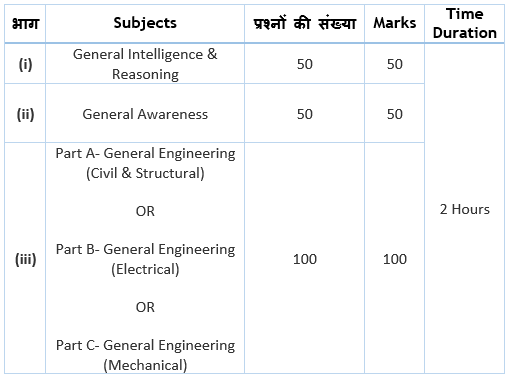
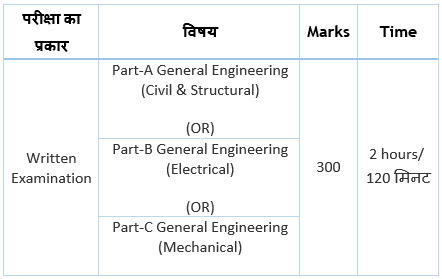
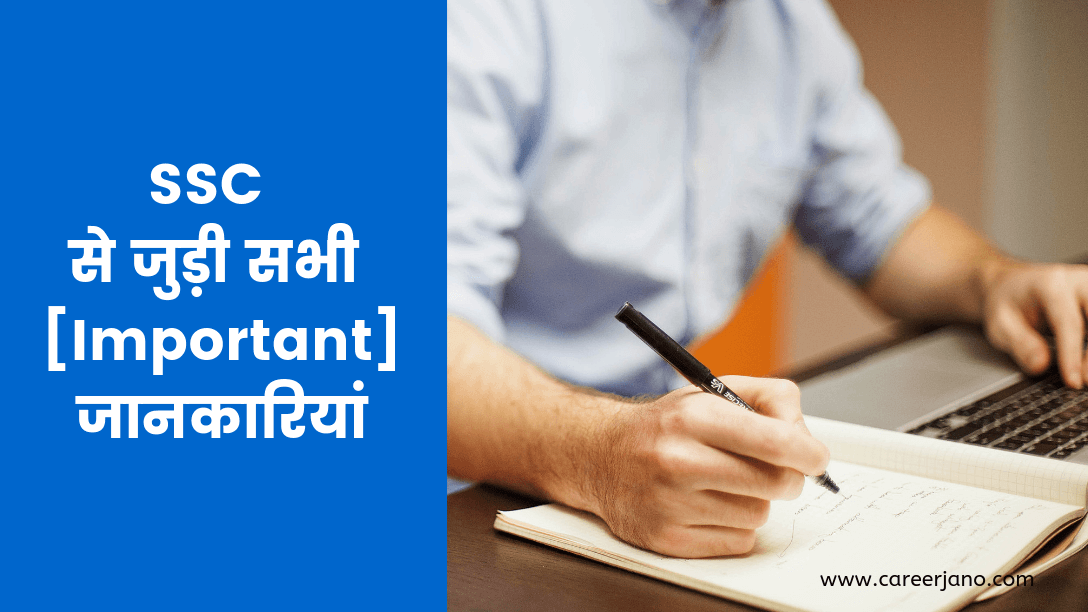
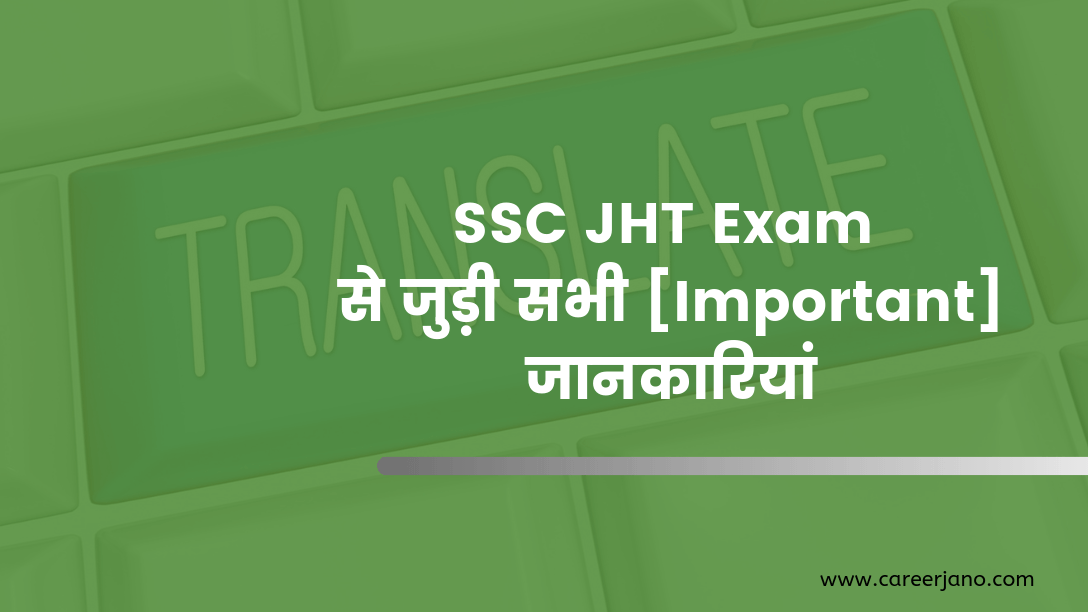
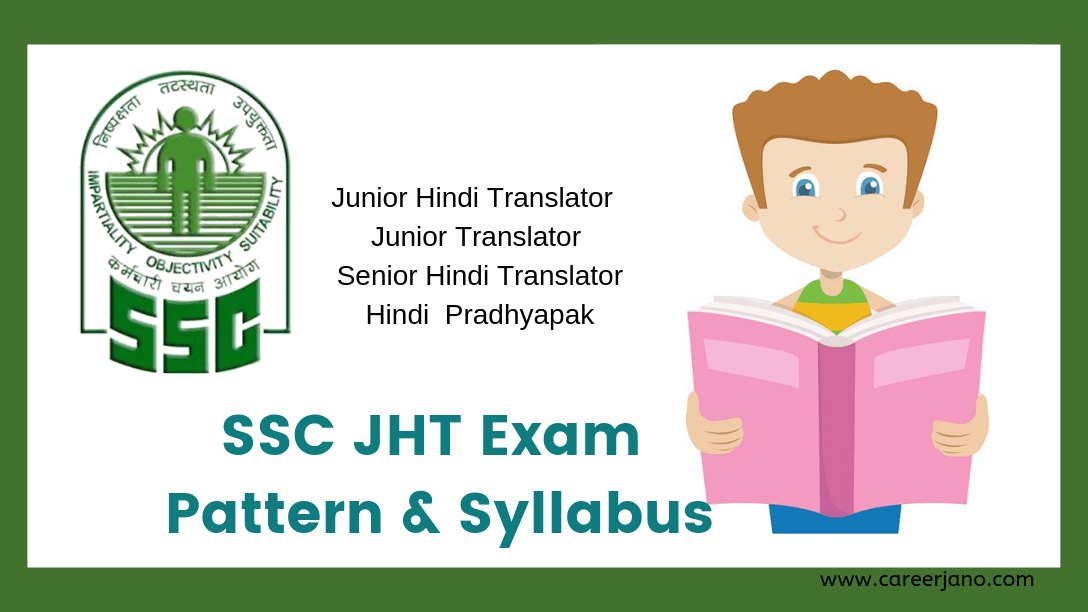
Sir Mera 2 years diploma hai keya mai SSC je ke lite available hu
Hi Amardeep! Yes, you are eligible for SSC JE Exam.
Sir mene 12 ki hai pcm se or ssc ki preparations ki hai to kya me ssc je ke liye apply kr skti hu
Nhi
Nahi because iske liye technical education compulsory HOTA hai Jaise polytechnic….waise to hai ye polytechnic walo ke liye he hai but ye b.tech wale bhi apply Kar skte hai???!!!!!!
mai nai avi diploma kiya hai
Hi Chandan! आप SSC JE Exam के लिए Eligible हैं|
Sir me
Diploma (3) year course ke final year m hu kya m
jE examination ke liy eligible hu
Fastly reply sir
Sir mene Electrical Se 3 Yaer Diploma kiya he or 60%
Handicapped hu Kya me SSC JE ke Liye Teyar hu
Yadi Nahi to Karn Bataiye
Hi Yashwant! Yes, you are eligible!
Sir preparation k liye kaun si coaching join krna shi h aapko Jo better lge plz bta dijiye
Sir m abhe polytechnic (EE) KR RHA ho me abhe first year m ho mujhe ssc je ke liye preparation kb se start krna chahiye plz sir bta dejiye
Hello sir, I complete my diploma in civil engineering with 82%marks from gov polytechnic bijnor, now i am pursuing b. Tech (same trade),,,,, what should i do. I am very confused about my prepare for JE
Kya SSC he me Mathe ke questions Athen he
Sir Maine diploma in civil engineering kiya hai Hyderabad se Kya Mai ssc je ka tayari Kar sakta hu plz bataye….
Sir .is .bar .Mera..fourth sem. Hai. First. Second. Third sem. Mera. 80+ hai. Sir. Kya. Mai. Abi. Se..SSC..jee ki .preparation..start..kr..do. Agr ha to. Sir. First. Paper ke. Liye .kaun .si. Book. Lu. On. Hindi. Based..pr
Unconventional Objectives 5500 questions & papers
Sir mera es bar fivth semester h
SSC J.E. ki preparation kb se start Kar du.
Aur Con si book Sabse best h
Sir mera diploma complete ho gaya hai to kaise SSC JE ki preparation kare
Sir mera ssc je ka paper h me kon se book lo teyari ke liye
सर जी ssc JE मेन्स पेपर हिंदी और इग्लिश दोनों में आता ह या सिर्फ इग्लिश में ।
Sir ji Mera final year mein five semester me Hu Mechanical Productio se Hu kya sir main eligible Hu SSC jE ke ki sir
Hello sir kya training ke during bhi salary milti rahegi ya nahi.
Sir ky last semester ke appearing me SSC JEE ka form daal saktey hai
Sir 12th complete hai mere soch rha hu ki ssc ka kon sa post sabse better rhega